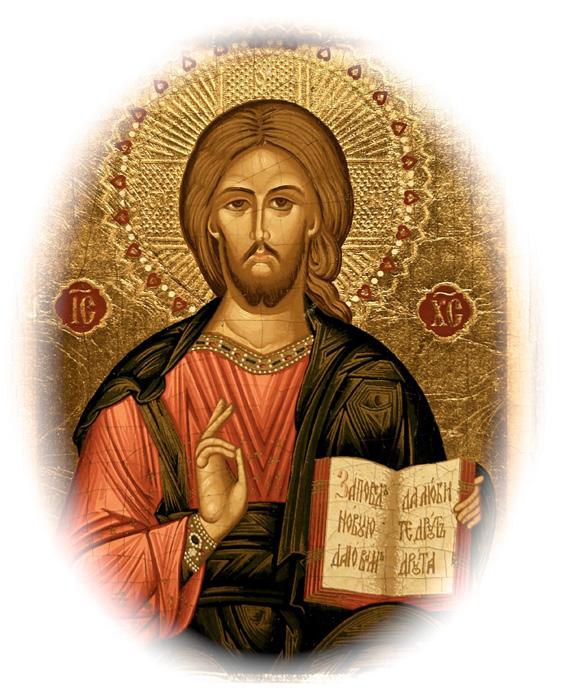
4 minute read
The ‘Our Father’ in Aramaic
Craig E. Morrison O.Carm
The Origin Of Wisdom At Creation
In the closing scene of Jesus Christ Superstar, Judas interrogates Jesus as to why he appeared “in such a strange time.” Part of the strangeness of Jesus’s time was the linguistic crossroads in which he lived. He preached in Aramaic, but in the short time between his preaching and the emergence of the written Gospels (40 years), his message was translated into Greek.
Jesus’s hometown of Nazareth in Galilee in the north of Israel was likely a monolingual Aramaic speaking village. There may have been some administrative activities in Greek, but the language of the marketplace in Nazareth was Aramaic. The more developed town of Sepphoris (6 kms northwest of Nazareth)—the administrative centre for the Galilee region in Jesus’s time—was also a mostly Aramaic speaking town, though that populace might have had more exposure to Greek than the folks in Nazareth.
The Aramaic Gospels
There are no surviving original Aramaic gospels. The Aramaic gospels that we possess are 3rd-5th century translations of the Greek gospels. It is quite possible that an original Aramaic gospel existed since the gospel message spread west from Jerusalem in Greek and east from Jerusalem in Aramaic. But these original Aramaic manuscripts are lost, leaving scholars with only a dream that one day they might be found.

I am often asked if Jesus spoke Greek. The answer is simple: if he did, to whom would he have spoken it? Outside of Jerusalem, very little Greek was spoken among the Jewish populace. So when Jesus taught his disciples to pray, he spoke the prayer we know as the “Our Father” in the language he learned from Mary and Joseph—Aramaic.
Jesus’s Aramaic peeks through the Greek gospels periodically and these “Aramaisms” are preserved in our English translations. The most significant moment comes when, in Mark 15:34, Jesus, near death, cries out in prayer the first verse from Psalm 22: “Eloi, Eloi, lema sabachthani?” “My God my God why have you abandoned me?” (The significance of that supplication has to be left for another time, but it reveals that Jesus prayed the Psalms not in their original Hebrew but in his native Aramaic). There are other significant moments when Jesus speaks his own language in the Greek gospels. He says to Jairus’s dead daughter “Talitha qum,” “young girl get up” (Mark 5:41). In Mark 7:11 Jesus utters the word “Corban,” which the Greek Gospel writer translates with “an offering to God,” since his audience would not have known Aramaic. Jesus opens the ears of a deaf man with the word Ephphatha (Mark 7:34): “be opened,” Mary Magdalene addresses the risen Jesus with “Rabbouni ” (John 20:16) and Jesus refers to God as Abba (Mark 14:36) “Father.” Even the “Amen” we say in the liturgy reflects an Aramaic pronunciation.
‘OUR DAILY BREAD’
The “Our Father” has some very challenging expressions that are difficult to bring into English. Among them is “Give us this day our daily bread” (Matt 6:11). Annotated English translations put a note on the word “daily” (Greek: epiousios), as does the NRSV: or “our bread for tomorrow,” offering us a more literal translation for the Greek word “daily.” In the Aramaic translation of this Greek verse we read “Give us today the bread that we need” (literally “the bread of our necessity”), we discover how the early Aramaic speaking Christians interpreted this phrase. But what did Jesus mean? Perhaps he was alluding to the desert manna that first appeared in Exodus 16 to feed the ancient Israelite slaves who had just escaped Egypt and were hungry. Or perhaps this expression is an illusion to all the meals (the word “bread” in Aramaic often has a broader sense of “meal”) in the Gospels, including the Last Supper. Or maybe we just don’t know its precise meaning. As St. Ephrem writes, the interpretations of some biblical verses can be as diverse as the faces of their interpreters. These challenges remind us that we are praying an ancient prayer that was first spoken to a Jewish community in the area around Galilee, a time and place very different from our own.
‘INTO TEMPTATION’
The last few years has seen an increasing debate about the translation of the phrase “Lead us not into temptation” (Matt 6:13). On its surface this supplication sounds a bit off-putting. Why would God lead us into temptation? We can do that just fine on our own. We don’t need God’s help. To avoid this confusion, Pope Francis prefers the translation, “Do not let us fall into temptation” (the current Italian translation). A possible solution for understanding this puzzling phrase lies in its Aramaic translation.
The problem here is not the phrase, “Lead us not.” There is little doubt about its meaning in Greek or Aramaic. The difficulty lies in the English word “temptation.” The Greek word behind the English “temptation” is peirasmon. But this Greek word has two meanings, “temptation” and “trial.” The Vulgate interpreted it with “temptationem,” whence comes the English preference for “temptation.” But when we consider the Aramaic translations of the Greek gospels, we discover that Greek peirasmon was translated in the 3rd century with the Aramaic word nesyuna, which means “trial.” Thus, the Aramaic speaking Christians interpreted the www.magdalacolloquy.org phrase to mean “do not bring us to the trial” or, more freely expressed, “do not put us to the test.” In the background of this phrase may be the first verse in Genesis 22, “After these things God tested Abraham,” which opens the story known as “The Sacrifice of Isaac.” When we say to God, “do not put us to the test,” we are reminding God that we do not have the fortitude of Abraham. God could test Abraham and Abraham proved faithful. But we could very well fail and so we pray “do not put us to the test.”
Most of the “Our Father” prayer has a clear, though profound, meaning. I have focused on the two complicated lines in the prayer to help us appreciate the depth of their meanings within Jesus’s Jewish Aramaic world so that we, despite our limited knowledge of that world, might have a richer understanding of “the prayer that Jesus taught us.”





